René Crevel : a rebellious poet
Born on August 10, 1900, into a bourgeois Parisian family, René Crevel lived a childhood without joy. Spectator of his father's suicide when he was only 14 years old, this event will profoundly change his life and make him a disturbed and tormented being.
It was in 1921, during his military service, that he came into contact with the Littérature magazine group and met André Breton. It is a complex relationship that will bind them throughout their lives. Little inclined to understand certain traits of his friend's personality and in particular his homosexuality and his desire for worldliness, Breton was nevertheless seduced by this inimitable voice of revolt that was Crevel. He will also describe him as an attractive person who is faithful to his friends. Despite the numerous oppositions which will separate them at certain times, Crevel, on each great occasion, will line up alongside Breton and will remain close to him through sensitivity.
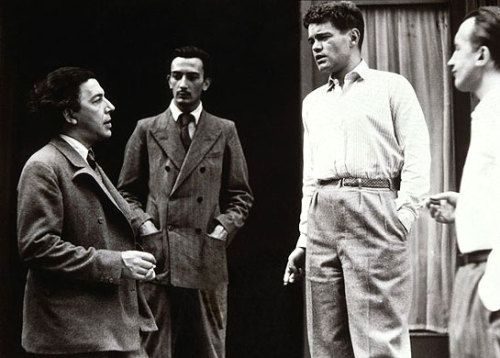
Breton, Dali, Crevel and Eluard
It was in 1921, during his military service, that he came into contact with the Literature magazine group and met André Breton. It is a complex relationship that will bind them throughout their lives. Little inclined to understand certain traits of his friend's personality and in particular his homosexuality and his desire for worldliness, Breton was nevertheless seduced by this inimitable voice of revolt that was Crevel. He will also describe him as an attractive person who is faithful to his friends. Despite the numerous oppositions which will separate them at certain times, Crevel, on each great occasion, will line up alongside Breton and will remain close to him through sensitivity.
Portrait of Alberto Giacometti for René Crevel
Print by Alberto Giacometti from album B
(for sale on the site)
Print by Joan Miro from album B
(for sale on the site)
Print by Wifredo Lam from album B
(for sale on the site)
In 1922, he initiated the group of surrealists into the experiments of "hypnotic sleep", which would play a major role in the nascent surrealism. However, he gets tired of it quickly and leaves the group to join Tristan Tzara. In 1923, he thus participated in the last Dadaist demonstrations. His various trips back and forth between the surrealists and the dadaists were not enough for him. He then became a member of the Communist Party in 1927 and threw himself body and soul into the socialist utopia and commitment to the party. However, he quickly finds himself torn between two tendencies : that of wanting to maintain his surrealist struggle on the one hand and his political commitment on the other. A conciliation which will never succeed and which will contribute in part to his despair.
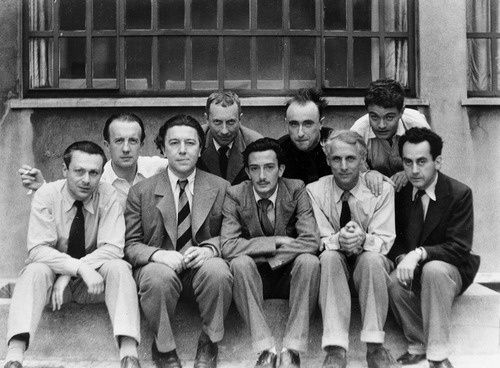
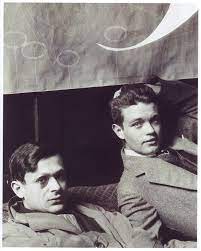
Surreal group
Tzara and Crevel
Affected by tuberculosis at a young age, he was forced to put his social life aside and spent many months reclusive in the Swiss mountains, at times accompanied by his friend Paul Eluard. In the stories he published between 1924 and 1933, Crevel transposed his life and his anxieties, fueled by the trauma and obsession of his father, as well as the hatred for his mother. He thus draws up in his first book "detours" a dark portrait of her and described her as : "an extremely rigid bourgeoise who refuses all joy and all pleasure and who lives in a cramped environment, in a cramped way."
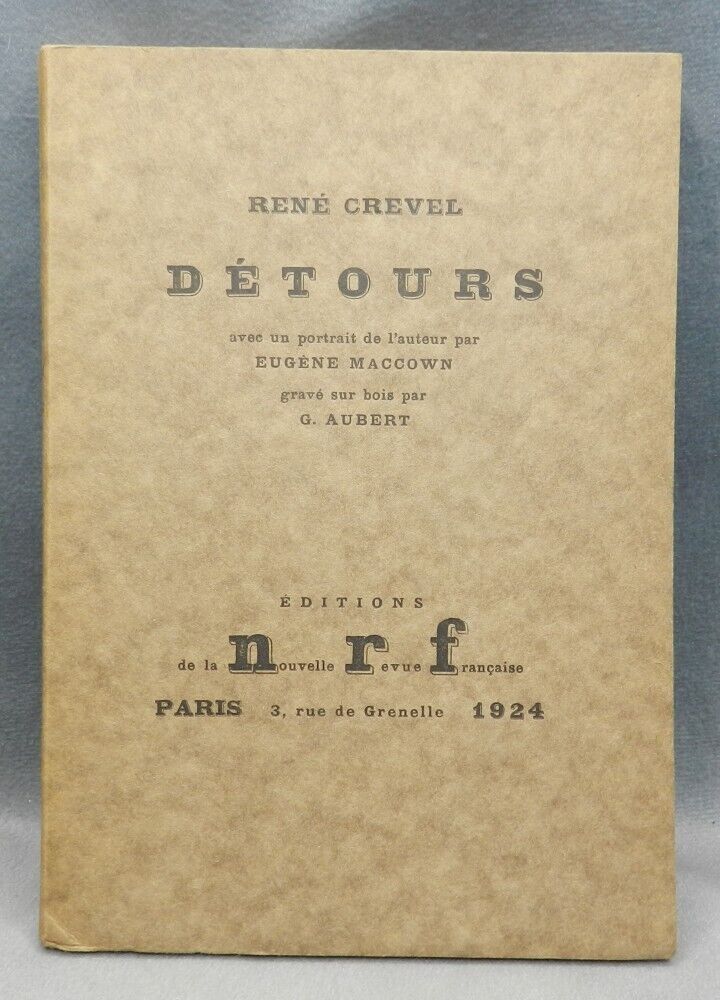
Book Détours by René Crevel
Distrustful like any surrealist of the romantic style, he succeeded in inventing in his own way, a pot-pourri style that combines pamphleteering and introspective questioning. Just like the works of Max Ernst, his novels are surrealist poems where the boundaries between life and poetry are erased and the work is seen dynamited from within.
Print by Max Ernst from album B
(for sale on the site)
Crevel led many battles during his life, he revolted in particular against the army and the church, but also against bourgeois society. And yet, at the same time as he castigates this society, he frequents it closely and throws himself into frenetic social activity whenever he can. The total sincerity of his trajectory then overflows with contradictions and it is in this that we can say that he asserts himself as surrealist.
In 1935, he got involved in the organization of the "international congress of writers for the defense of culture", but following the exclusion of Breton, and even after having again distanced himself from the surrealist group a year earlier, he in turn decided to leave the congress, for lack of having succeeded in having him reinstated. The same day, he learns that his tuberculosis, which he had been told, is cured, in reality is not. He committed suicide the following night, leaving the only word: "Please cremate me. Disgust.".
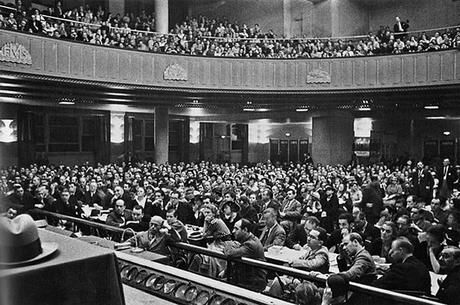
International Congress of Writers for the Defense of Culture